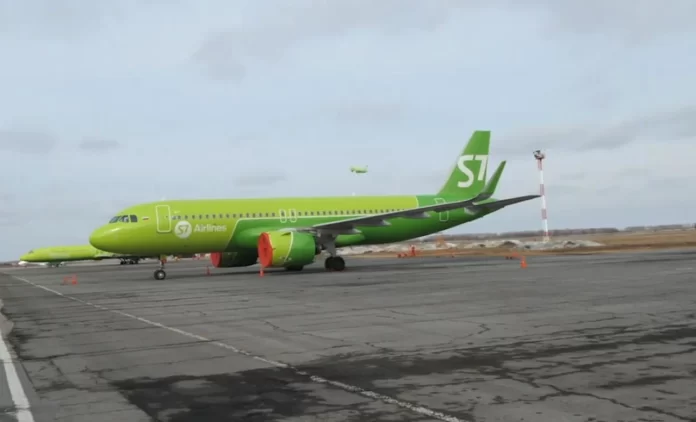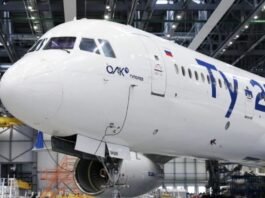S7 Airlines, the largest private carrier in Russia, signed a contract for using the domestic ACARS service for commercial purposes.
ACARS, an acronym for “Aircraft Communications Addressing and Reporting System,” is a digital system that facilitates the transmission of brief text messages between aircraft and ground stations via radio or satellite communication. In 1978, ARINC (USA) introduced the protocol, which employs the Telex format. Subsequently, SITA, a Swiss telecommunications provider in the aviation sector, expanded its network of ground stations with radio apparatus that functioned within the ACARS.
The purpose of its creation was quite surprising. The payment system for crews was based on the amount of time the aircraft spent on the ground and in the air, and the calculations were made based on verbal reports from the crews to the dispatchers. At that time, the majority of airlines worldwide had implemented this system. They opted to automate the process in order to prevent the possibility of errors, whether they were inadvertent or intentional, that were inevitable when the time was manually recorded. Sensors were installed on the doors, parking brakes, and landing gear of the aircraft to accurately ascertain the time at which the aircraft arrived at the gate, received clearance for departure, took off, and landed. Corresponding messages were transmitted to a central computer in accordance with the signals received from these sensors.
ACARS is a system that facilitates two-way communication. Messages can be transmitted from the aircraft to the ground, and they can also be received from the ground. The message is printed by a printer located in the cockpit. ACARS enables the transmission of a message to the aircraft from the flight operations center at the base airport, for instance, despite the fact that the live dispatcher, with whom the pilot communicates via voice, is always the closest one serving the area over which the aircraft is traveling.
Russia already had a network of radio stations, but foreign processing centers handled the processing of aviation messages. Prior to the imposition of the sanctions, the primary focus of VHF coverage was on significant airports and air routes. International providers provided satellite coverage. Certain regions entirely depended on HF ACARS for remote area coverage.
International airlines, larger Russian carriers, business aviation, and certain government aircraft were the primary users.
Weather updates, crew communications, maintenance reports, and modifications to flight plans consisted of typical applications.
The service eventually became unavailable to Russian airlines, resulting in increased economic losses and reduced fleet efficiency.
Rostec State Corporation’s group companies, Infocom-Avia and Azimut, have developed equipment and processes in response to the withdrawal of foreign providers SITA and ARINC. They are presently in the process of implementing a comparable digital communication service for Russian airlines.
Azimut developed the essential equipment as part of its import substitution initiatives. Infocom-Avia assumed the role of aviation information services operator. These companies collaborated to reestablish the ACARS “air-to-ground” technology service for domestic airlines. They established a data processing center in Russia and a network of ground stations along the primary flight routes (north-south and west-east).
Viktor Solomentsev, CEO of Infocom-Avia, states that the system is currently transitioning to commercial operation after testing and improvement.
Domestic airlines have been actively involved in the testing of the services provided by Infocom-Avia and Azimut since the inception of the Russian ACARS project.
Several airports, including Sheremetyevo, have already installed domestically developed ground-based digital communication stations.
Specifically, the coverage radius of one base station is 300 km, and currently, 10 are in operation covering S7 Airlines’ main flight routes, with plans to increase the number of stations to 55 by 2026.
A Russian processing center processes data and connects it to the operational systems of Aeroflot and S7 Airlines. The process of connecting Rossiya Airlines and Red Wings is already underway.
By the end of 2023, plans had called for the installation of more stations at ten airports across the country.
Installing 105 ground stations will ensure full-scale service coverage across Russia’s entire territory, enabling complete independence from Western systems.
Russian companies have developed a service that enables the transmission of all telemetry from the aircraft to the airline’s control center. It also facilitates the exchange of meteorological and operational information, as well as necessary instructions, between the crew and operational services, particularly in critical situations.
ACARS service coverage is to be expanded throughout the entire nation, and all Russian airlines are to be connected. Infocom-Avia is also taking into account numerous requests from foreign airlines to establish connections to the ACARS service within Russian territory.
With the ACARS service back up and running, Russia can now offer new types of air navigation services that weren’t available before. These include digital automatic transmission of airport area information (D-ATIS), digital departure clearance (DCL), and controller-pilot data link communication (CPDLC).
Let us identify the identity of the AFARS providers in the market. Rockwell Collins has acquired ARINC, which will be incorporated into a more comprehensive suite of aviation communication services. They provide a variety of data link solutions, such as ACARS over IP, which facilitates quicker data transmission. Cebu Pacific Air, an airline headquartered in the Philippines, employs SITA’s ACARS over IP solution to facilitate the efficient and cost-effective transmission of substantial volumes of data. By employing terrestrial cellular networks, this system assists in circumventing infrastructure constraints at specific airports. The Aviator series from Cobham in the United Kingdom supports ACARS over IP, which enables airlines to utilize broadband connections for data transfer. Their technology is being integrated into a variety of aircraft models, thereby improving their operational capabilities. Iridium and Inmarsat are satellite-based ACARS providers. Although this is still in the early phases of development and has not been widely adopted, certain airlines are conducting experiments with cellular GSM networks for ACARS services.
To provide context, Iridium and Inmarsat are essential satellite-based alternatives, whereas ARINC and SITA dominate the ACARS landscape. Furthermore, the capabilities and efficacy of aircraft communications are being enhanced by advancements in ACARS over IP technology, which are being provided by providers such as Rockwell Collins and Cobham.





